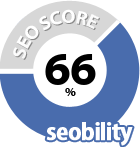SEO Course and Tutorial will cover everything you need to know about search engine optimization\ (SEO) to improve your website's ranking and drive traffic start with the basics of SEO:
What is SEO stands for search engine optimization website to rank higher in search engine results pages (SERPs) for specific keywords and phrases.
Why is SEO important helps your website appear higher in search engine results pages (SERPs), which increases the likelihood of people finding your site and clicking through to it to I, and sales for your business.
How do search engines work engines use complex algorithms to determine which pages to display in their search results relevance and quality of the content on your site, the number and quality of backlinks pointing to your site, and the overall user experience of your site?
on-page SEO and off-page SEO refers to optimizing the content and structure of your website to make it more search engine-friendly.
SEO involves building high-quality backlinks and establishing your site as an authority in your industry.
Now that we've covered the strategies you can use to improve your website's ranking.
By identifying these keywords, you can optimize your content to target the most relevant and high-traffic keywords On-page optimization involves optimizing the content and structure of your website to make it more search engine-friendly.
Off-page optimization involves building high-quality backlinks to your site and establishing your site as an authority in your industry.
- Technical SEO Technical SEO involves optimizing the technical aspects of your website to make it more search engine-friendly.
- Local SEO Local SEO is optimizing your website to rank higher in local search results.
- Google My Business profile, building local citations, and getting positive reviews.
- Mobile optimization involves optimizing your website to provide the best possible user experience on mobile devices.
In summary, SEO is a critical component of any digital marketing strategy.
By following the outlined in this course, you can improve your website's ranking and attract more organic traffic to your site.
Here's an overview of the topics we will cover:
- Introduction to SEO
- Keyword Research
- On-Page Optimization
- Technical SEO
- Link Building
- Local SEO
- Mobile Optimization
- Voice Search Optimization
- E-commerce SEO
- Analytics and Measuring Success
Let's get started!
Introduction to SEO
Search Engine Optimization (SEO)
your website to improve its visibility and ranking on search engines like Google, Bing, and Yahoo.
SEO is an ever-evolving field, and it requires a deep understanding of how search engines work, how people search, and how to optimize your website to meet the needs of both search engines and users.
Keyword Research
Keyword research is the keywords and phrases people use to search for your products or services online. It is a crucial part of SEO, as it helps you understand what your target audience is searching for and how you can optimize your website to match their search queries.
These tools can help you identify relevant keywords, estimate their search volumes, and analyze their competition.
Once you have identified your target keywords, you can optimize your website's content, title tags, meta descriptions, and other elements to match those keywords.
On-Page Optimization
On-page optimization includes:
- Creating high-quality, relevant, and engaging content
- Optimizing your page titles and meta descriptions
- Using header tags (H1, H2, H3) to structure your content
- Adding alt tags to your images
- Creating a mobile-friendly website
- Ensuring fast loading times
- Using internal linking to connect your content
On-page optimization is critical to SEO success, as it helps search engines understand the relevance and quality of your website's content.
Technical SEO refers to optimizing your website's technical elements to improve its visibility and ranking on search engines.
Technical SEO includes:
- Optimizing your website's URL structure
- Creating a sitemap.xml file and submitting it to search engines
- Implementing structured data markup
- Optimizing your website's robots.txt file
- Ensuring your website is secure (using HTTPS)
- Optimizing your website's load speed
- Fixing broken links and crawl errors
- Technical SEO that search engines can crawl, index, and understand your website's content.
Link building is acquiring high-quality links from other websites to your website. Links are essential to SEO because they signal to search engines that other websites find your content valuable and relevant.
Link building includes:
- Creating high-quality, shareable content
- Reaching out to other websites to request backlinks
- Guest posting on other websites
- Creating infographics and other visual content that
- Using social media to promote your content and attract links
Link building is crucial to SEO success, but it requires a strategic and ethical approach to avoid penalties from search engines.
- Local SEO
Local SEO is the process of optimizing your website and online
Section Introduction to SEO
- What is SEO?
- Why is SEO important?
- How do search engines work?
- The evolution of SEO
Keyword Research
- What is keyword research?
- How to conduct keyword research
- Keyword tools and resources
- Keyword selection and targeting
: On-Page Optimization
- What is on-page optimization?
- Title tags and meta descriptions
- Header tags and content optimization
- Image optimization
- URL structure and canonicalization
- Internal linking
Section 4: Off-Page Optimization
- What is off-page optimization?
- Link-building strategies and techniques
- Guest posting and content marketing
- Social media marketing and optimization
Section 5:
Technical SEO
- What is technical SEO?
- Site structure and navigation
- Mobile Optimization
- Site speed and performance
- Schema markup and structured data
Section 6:
SEO Analytics and Reporting
- What is SEO analytics?
- Metrics and KPIs
- Google Analytics and Search Console
- Reporting and tracking progress
Section 7
Advanced SEO Techniques
- Local SEO and Google My Business
- E-commerce SEO
- International SEO
- Voice search optimization
- Artificial Intelligence and machine learning in SEO
Section 8:
SEO Best Practices and Future Trends
- SEO best practices
- Emerging Trends in SEO
- Future of SEO and search engines
Whether you are a beginner or an experienced SEO professional, this course will provide you with the knowledge and skills you need to succeed in 2023 and beyond.
Section 1:
Introduction to SEO
- What is SEO?
- Why is SEO important?
- How do search engines work?
- The evolution of SEO
Section 2:
Keyword Research
- What is keyword research?
- How to conduct keyword research
- Keyword tools and resources
- Keyword selection and targeting
Section 3:
On-Page Optimization
- What is on-page optimization?
- Title tags and meta descriptions
- Header tags and content optimization
- Image optimization
- URL structure and canonicalization
- Internal linking
Section 4:
Off-Page Optimization
- What is off-page optimization?
- Link-building strategies and techniques
- Guest posting and content marketing
- Social media marketing and optimization
Section 5:
Technical SEO
- What is technical SEO?
- Site structure and navigation
- Mobile Optimization
- Site speed and performance
- Schema markup and structured data
Section 6:
SEO Analytics and Reporting
- What is SEO analytics?
- Metrics and KPIs
- Google Analytics and Search Console
- Reporting and tracking progress
Section 7:
Advanced SEO Techniques
- Local SEO and Google My Business
- E-commerce SEO
- International SEO
- Voice search optimization
- Artificial Intelligence and machine learning in SEO
Section 8:
SEO Best Practices and Future Trends
- SEO best practices
- Emerging Trends in SEO
- Future of SEO and search engines
- Whether you are a beginner or an experienced SEO professional, this course will provide you with the knowledge and skills you need to succeed in 2023 and beyond.
Let's start with the basics:

What is SEO?
SEO stands for Search Engine Optimization, which is optimizing your website to improve its visibility and ranking in search engine results pages (SERPs). In other words, SEO involves your website's content and structure to make it more attractive to search engines like Google, Bing, and Yahoo.
Why is SEO important?
SEO is because it helps your website rank higher in search engine results pages, which means more traffic and potential customers. Studies show that the top three results in Google receive 75% of all clicks, which is why ranking high in search engines is critical for businesses of all sizes.
Now that you let's dive into the components of a successful SEO strategy:
Keyword Research
Keyword research is the keywords and phrases your target audience uses to search for your products or services. By understanding the keywords most relevant to your business, you can optimize your website's content to rank higher in search engine results pages.
To conduct keyword research, you can use tools like Google Keyword Planner, SEMrush, or Ahrefs. These tools will provide you with data on search volume, competition, and related keywords that you can use to optimize your website.
On-Page Optimization
On-page optimization refers to the changes you make to your website's content and structure to improve its relevance and readability for users and search engines' page titles, meta descriptions, header tags, and content for your target keywords.
When optimizing your content, use natural language and avoid keyword stuffing, which can hurt your website's ranking in search engines design and structure are user-friendly and easy to navigate.
Off-Page Optimization
Off-page optimization refers to outside your website to improve its ranking in search engines from other reputable websites, social media marketing, and influencer outreach.
When building backlinks, it's o focus on quality over quantity backlinks.
Technical SEO
Technical SEO refers to your website's technical elements to improve its performance and indexing by search motors optimizing your website's page speed, mobile responsiveness, and crawlability.
To ensure a website for technical SEO, you can use tools like Google's PageSpeed Insights, GTmetrix, or Pingdom. These tools will provide data on your website's performance and suggest ways to improve its technical optimization.
Analytics and Reporting
Analytics and reporting are critical components of a successful SEO strategy. By tracking your website's performance and analyzing your traffic data, you can identify areas for improvement and adjust your strategy accordingly.
Tools like Google Analytics, SEMrush,
and Ahrefs provide valuable insights into your website's traffic sources, bounce rate, and user behavior.
By regularly analyzing this data, you can make informed decisions about your website for better results.
Conclusion
SEO is a critical component of any digital marketing strategy you're a beginner or an experienced marketer, following the tips and techniques outlined in this guide can help you improve your
Module 1:
Introduction to SEO
- What is SEO important?
- How search engines work
- Different types of search queries
- Keyword research and analysis
- Understanding user intent
Module 2: On-Page Optimization
- Title tags, meta descriptions, and header tags
- Content optimization
- Image optimization
- URL structure
- Internal linking
- Site speed optimization
- Mobile Optimization
Module 3: Off-Page Optimization
- Link building strategies
- Guest blogging and outreach
- Social media optimization
- Local SEO
- Online reputation management
Module 4: Technical SEO
- Website architecture
- HTML markup
- XML Sitemap
- Robots.txt file
- Canonical tags
- HTTPS implementation
Module 5: SEO Tools and Analytics
- Google Analytics and Google Search Console
- Keyword research tools
- Backlink analysis tools
- Content optimization tools
- Site audit tools
Module 6: Advanced SEO
- Schema markup
- Accelerated Mobile Pages (AMP)
- International SEO
- Voice search optimization
- Artificial intelligence and SEO
By the end of this course, you will have a solid understanding of SEO and how to optimize your website for search engines. You will also learn the latest trends and techniques in SEO to stay ahead of the competition.










0 Comments